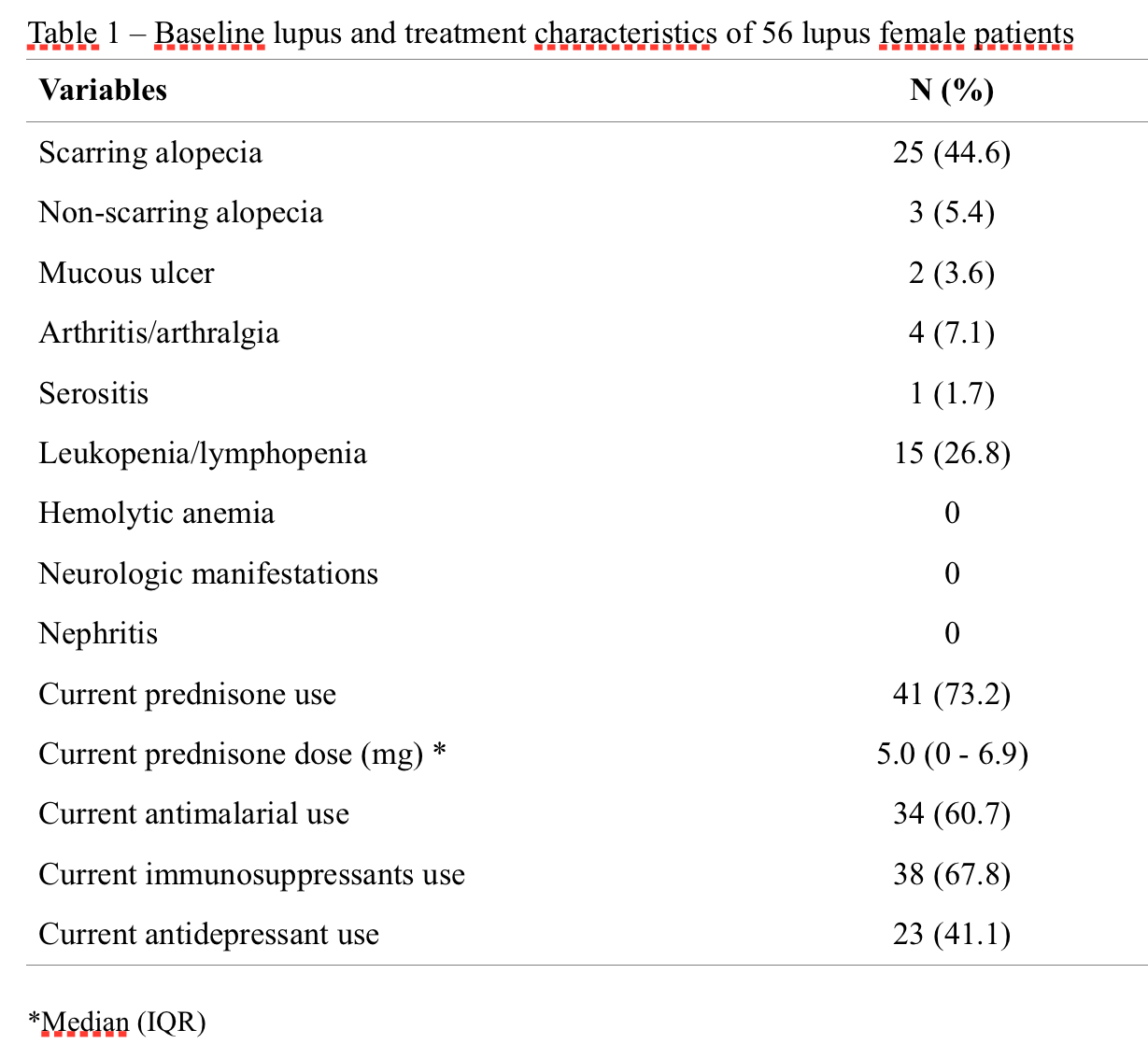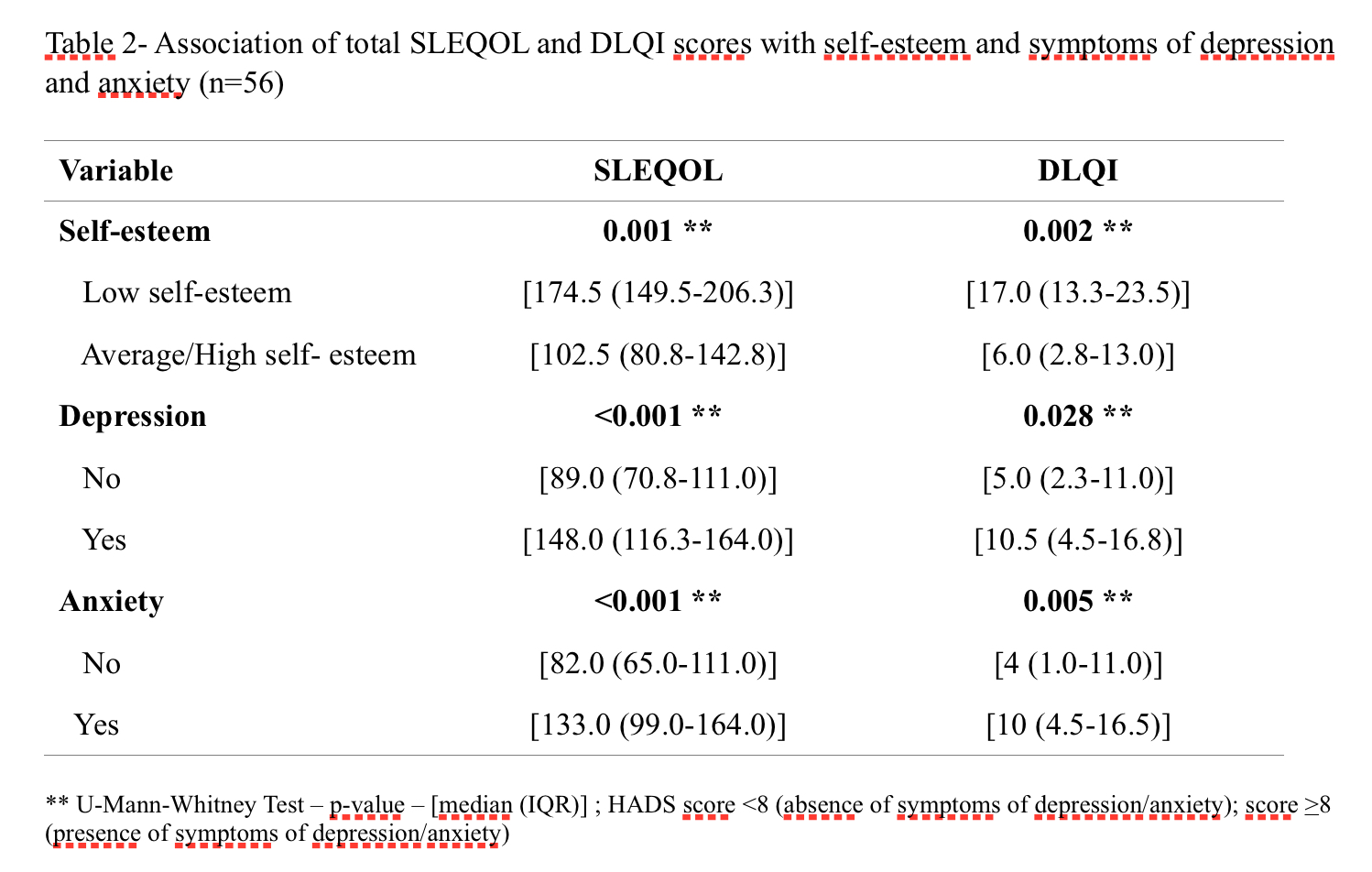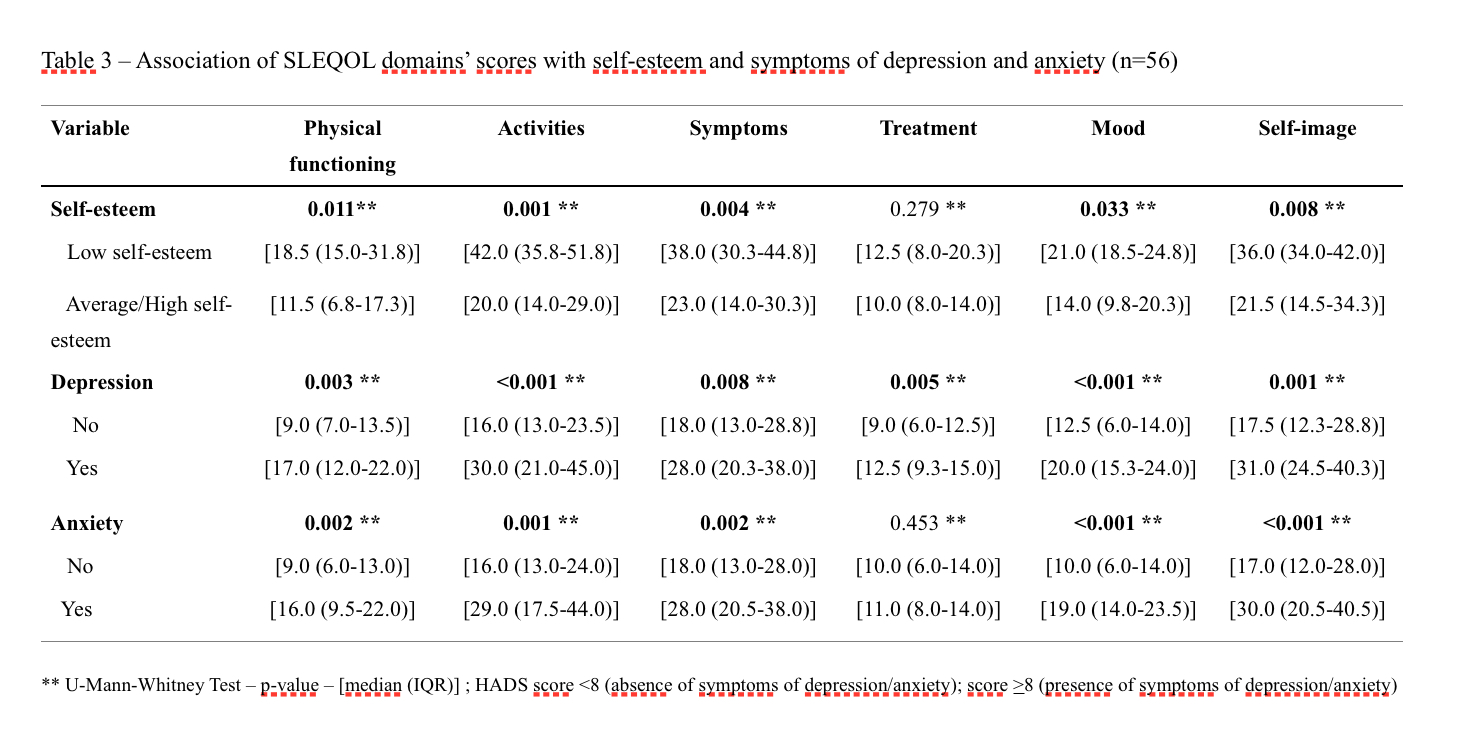Session Information
Session Type: Poster Session C
Session Time: 10:30AM-12:30PM
Background/Purpose: Body image of systemic lupus erythematosus (SLE) patients is affected by the mucocutaneous manifestations and its scars, in particular related to discoid lupus. The present study aims to describe health related quality of life (HRQoL) in SLE women with low disease activity presenting permanent skin damage, and explore its association with self-esteem and symptoms of depression and anxiety.
Methods: Cross-sectional analyses of the baseline data of a clinical trial of cosmetic camouflage use on SLE women with permanent skin damage on the face and low systemic disease activity (Trial Registration: UTN code U1111-1210-2554). Fifty-six consecutive women >18 years, that met SLICC/2012 and/or ACR/1997 classification criteria for SLE, with modified SLEDAI-2k< 4 were enrolled. Sociodemographic/lupus characteristics were investigated (Table 1). HRQoL was assessed by the Systemic Lupus Erythematosus Quality of Life (SLEQOL) and Dermatology Life Quality Index (DLQI) questionnaires - higher scores indicating worse HRQoL. Self-esteem was assessed by the Rosenberg self-esteem scale, and categorized as low self-esteem ≤ 25 and average/high >26. Symptoms of depression/anxiety were investigated by the Hospital Anxiety and Depression Scale (HADS), with higher values indicating greater severity of symptoms and a cutoff point of 8 used for the presence of depression and anxiety symptoms. Spearman’s correlation, U-Mann-Whitney, and Kruskal Wallis tests were used to explore the associations between the SLEQOL (total and domain-specific) and DLQI with Rosenberg and HAD scales.
Results: The median (interquartile range – IQR) of age was 47.0 (37.3 – 55.0) years and disease duration of 15.0 (8.0 – 24.8) years. The median (IQR) of the modified SLEDAI-2k was 2 (0-2) and of the SLICC-DI was 2 (1-3). 71.4% had less than eight years of education, 42.8% were married, 35.7% single, 71.4% were unemployed, and 75.0% had a family income between 1 and 3 times the minimum wage. SLEQOL and DLQI total scores were associated neither with sociodemographic nor with lupus characteristics. DLQI score was associated with low-self-esteem [low self-esteem: 17.0 (13.3-23.5) versus average/high self-esteem 6.0 (2.8-13.0); p=0.002], symptoms of depression [absence 5.0 (2.3-11.0) versus presence 10.5 (4.5-16.8); p=0.028] and anxiety [absence 5.0 (2.3-11.0) versus presence 10.5 (4.5-16.8); p=0.005] (Table 2). Also, SLEQOL total score was associated with low-self-esteem [low self-esteem: 174.5 (149.5-206.3) versus average/high self-esteem 102.5 (80.8-142.8); p=0.001], symptoms of depression [absence 5.0 (2.3-11.0) versus presence 10.5 (4.5-16.8); p=0.028] and anxiety [absence 5.0 (2.3-11.0) versus presence 10.5 (4.5-16.8); p=0.005] (Table 2). The association of SLEQOL domains with self-esteem and depression/anxiety are presented on Table 3.
Conclusion: Low HRQoL in SLE women with permanent skin damage and low disease activity was associated with low self-esteem and symptoms of depression and anxiety. These results highlight the importance of strategies to minimize the burden of permanent skin damage on the HRQoL of women with SLE.
To cite this abstract in AMA style:
Oliveira F, Moura F, Dias A, Santoro C, Pereira F, Telles R, Lanna C. Health-related Quality of Life in Women with Systemic Lupus Erythematosus with Permanent Skin Damage and Its Association with Self-esteem and Symptoms of Depression and Anxiety – a Cross-sectional Study [abstract]. Arthritis Rheumatol. 2024; 76 (suppl 9). https://acrabstracts.org/abstract/health-related-quality-of-life-in-women-with-systemic-lupus-erythematosus-with-permanent-skin-damage-and-its-association-with-self-esteem-and-symptoms-of-depression-and-anxiety-a-cross-secti/. Accessed .« Back to ACR Convergence 2024
ACR Meeting Abstracts - https://acrabstracts.org/abstract/health-related-quality-of-life-in-women-with-systemic-lupus-erythematosus-with-permanent-skin-damage-and-its-association-with-self-esteem-and-symptoms-of-depression-and-anxiety-a-cross-secti/



